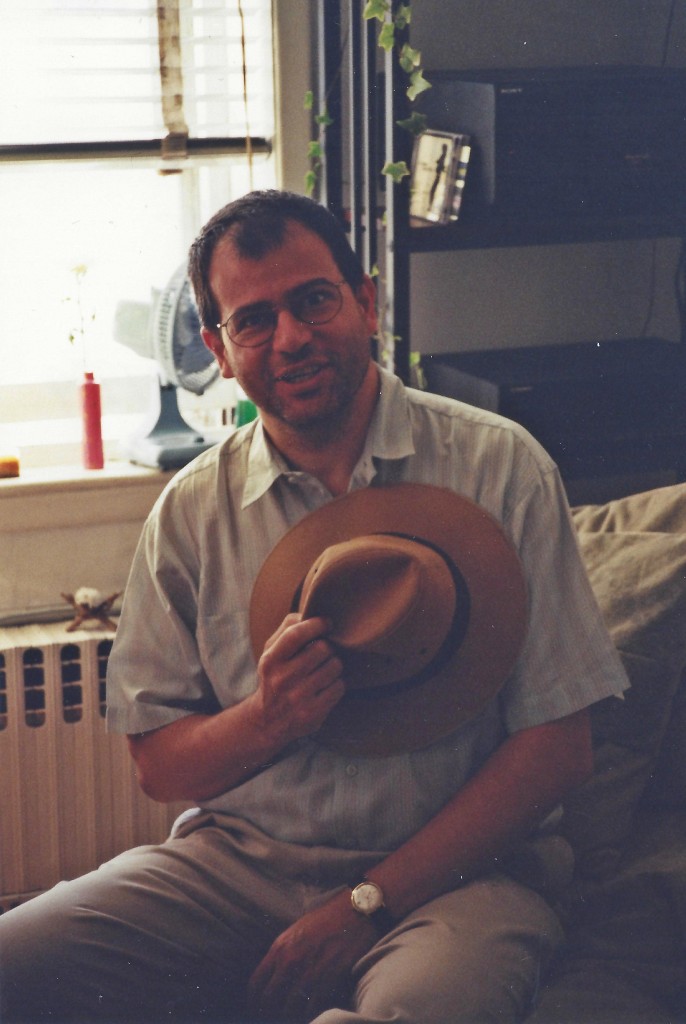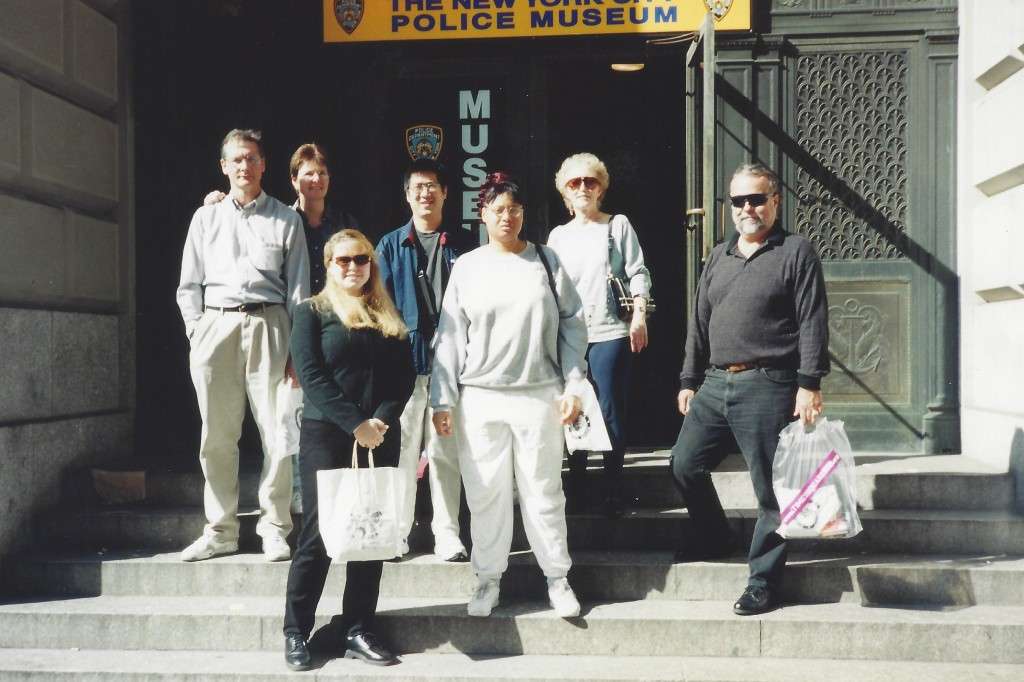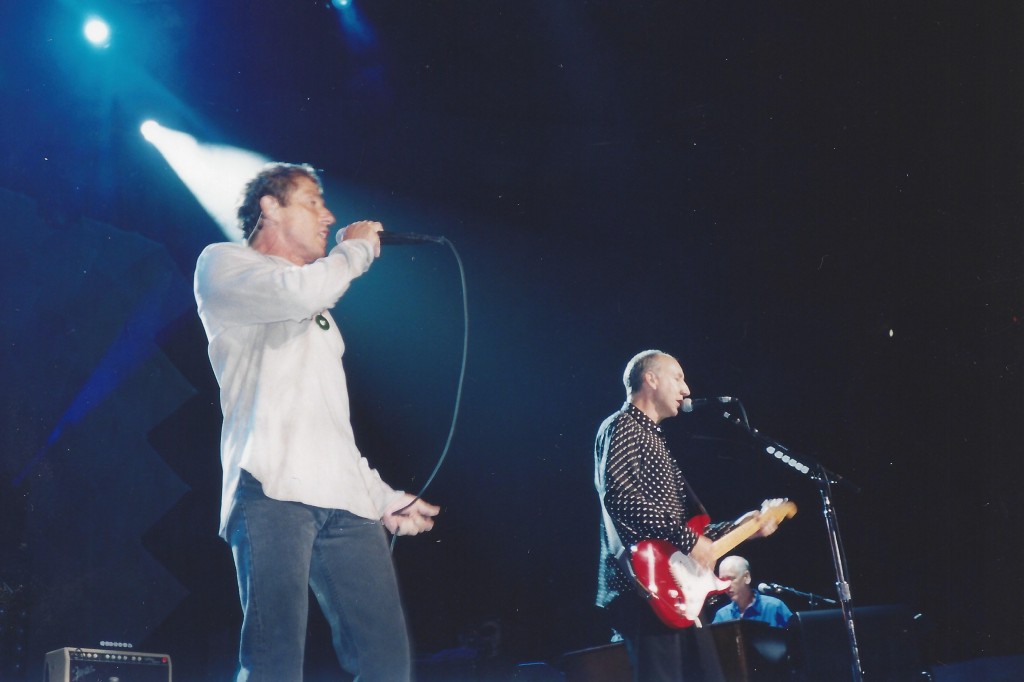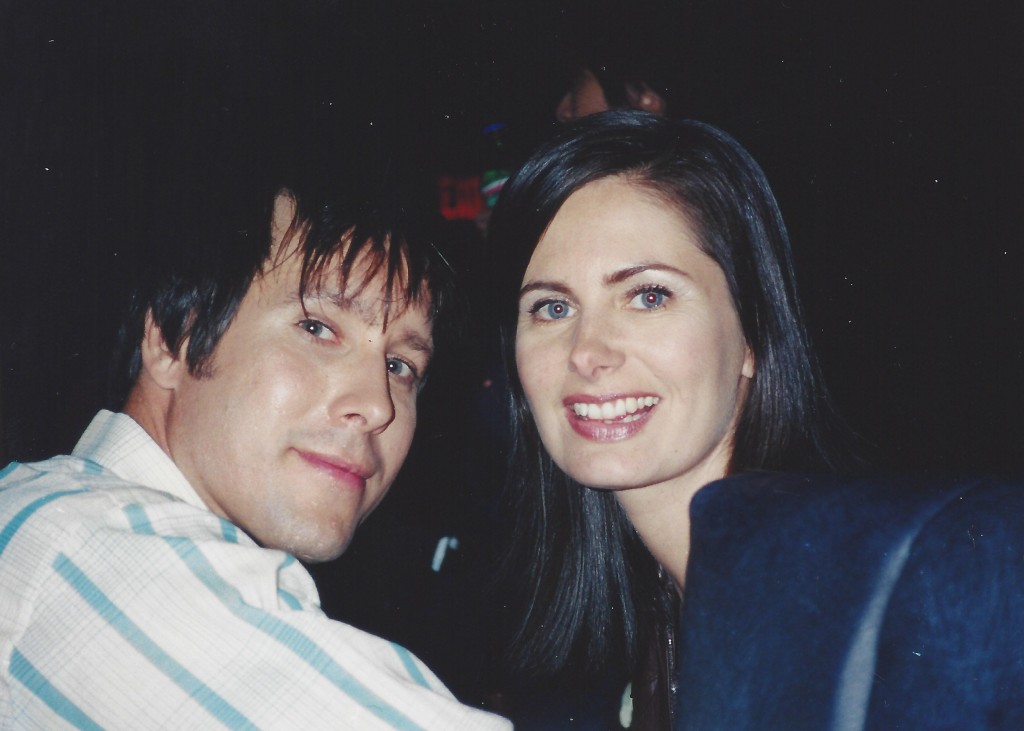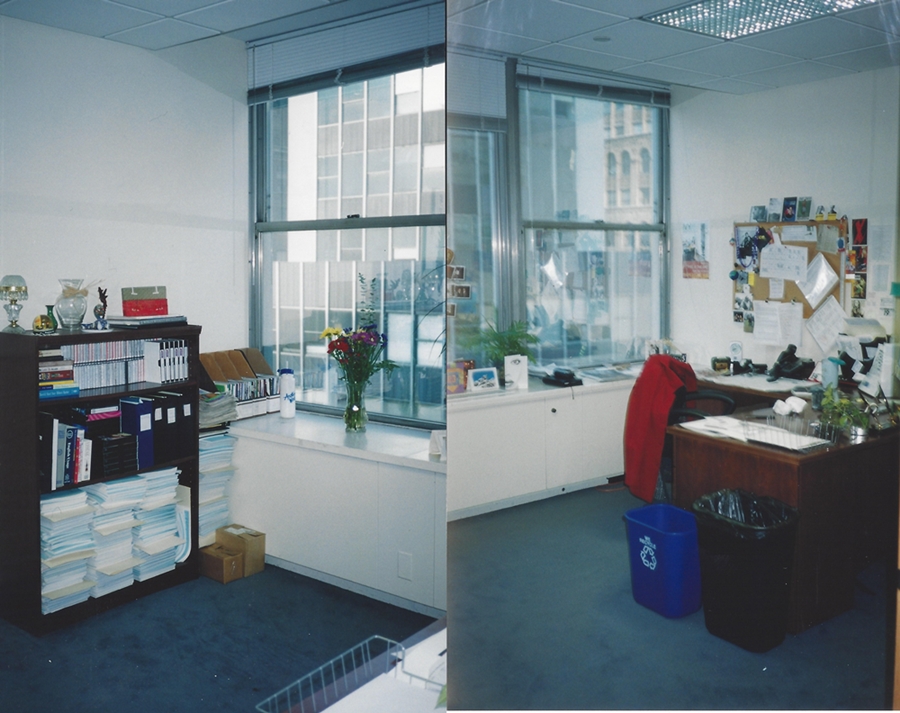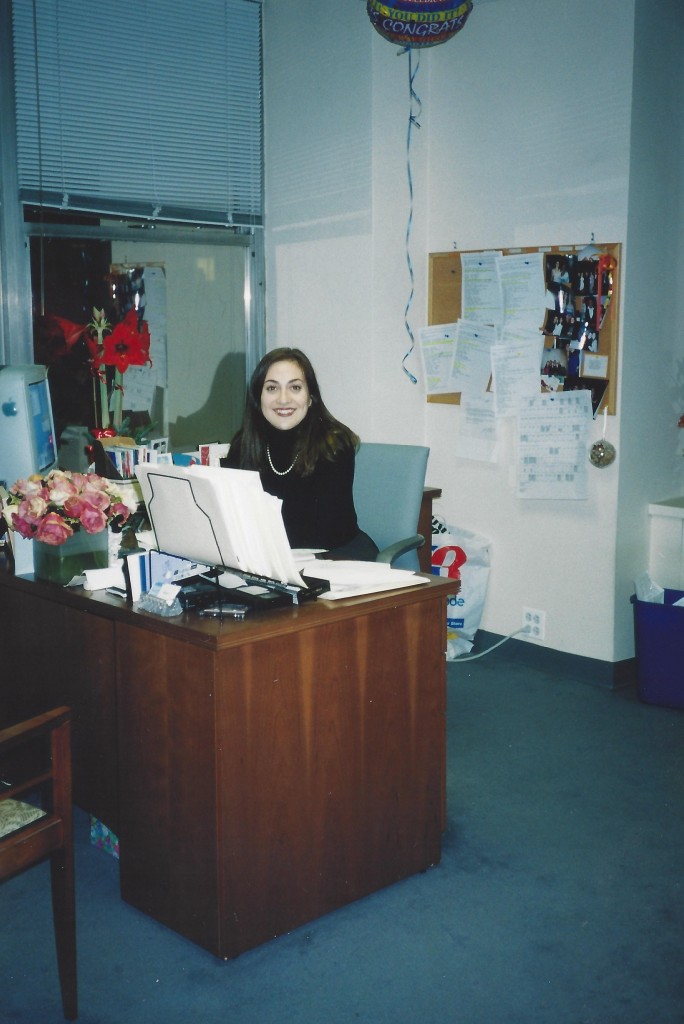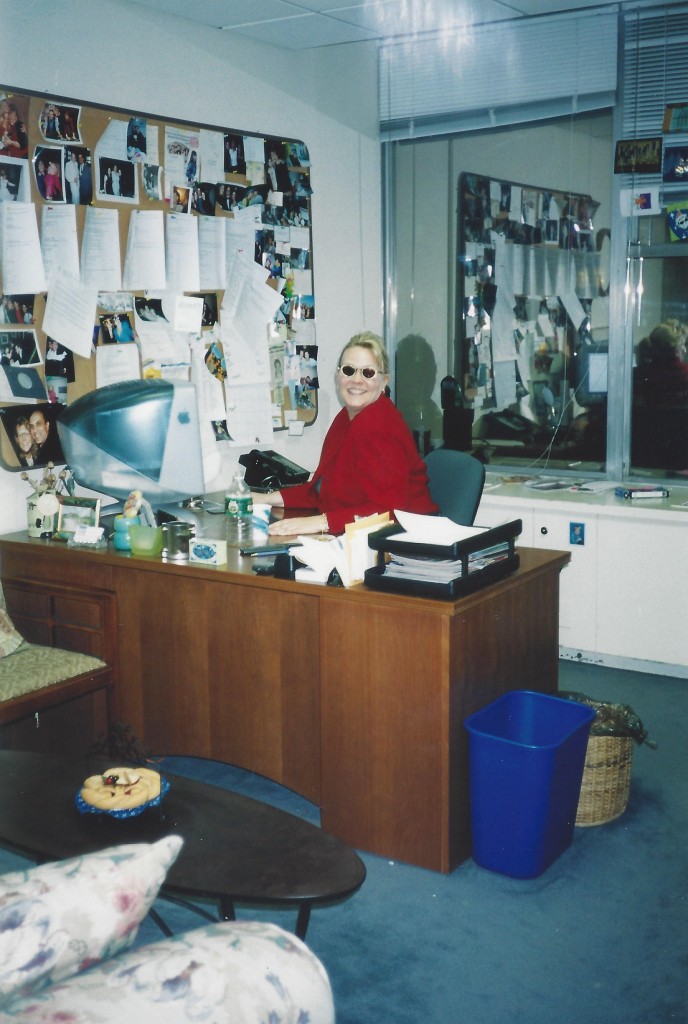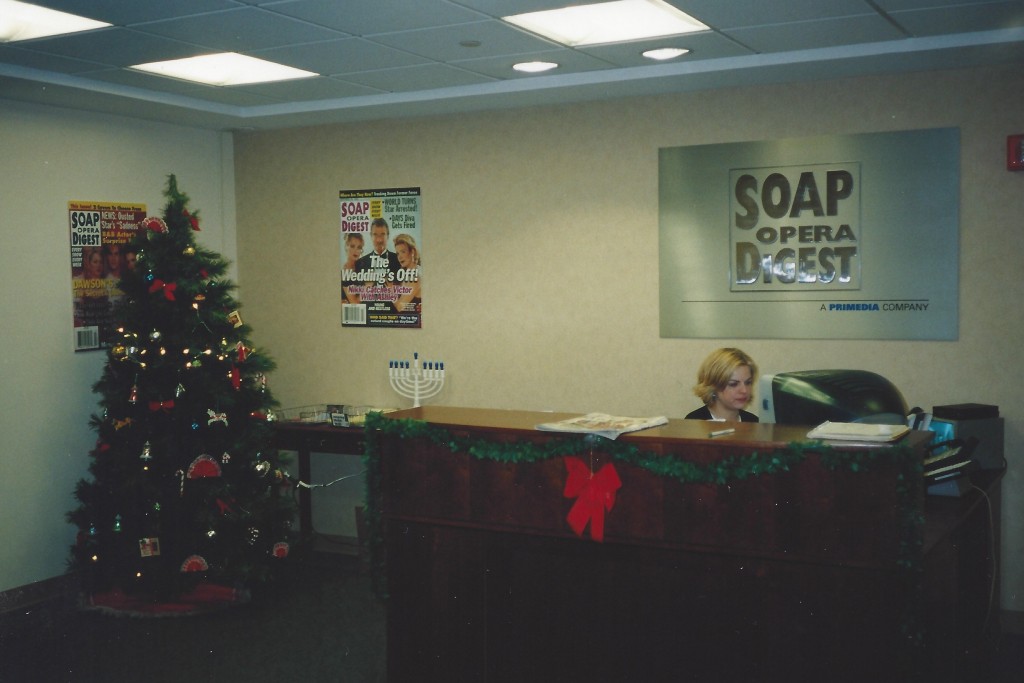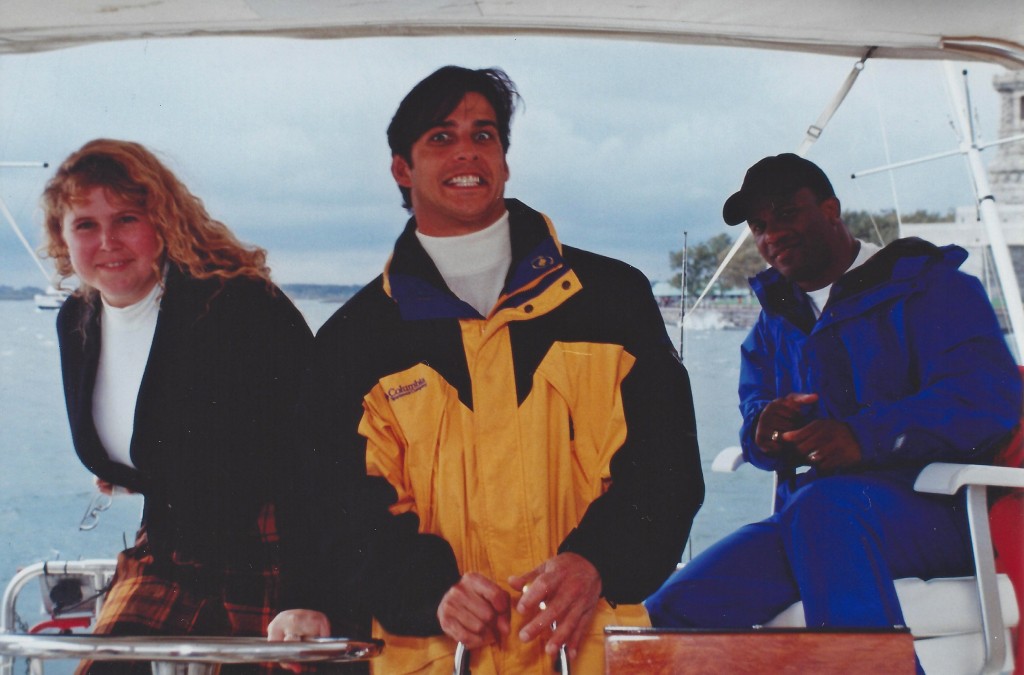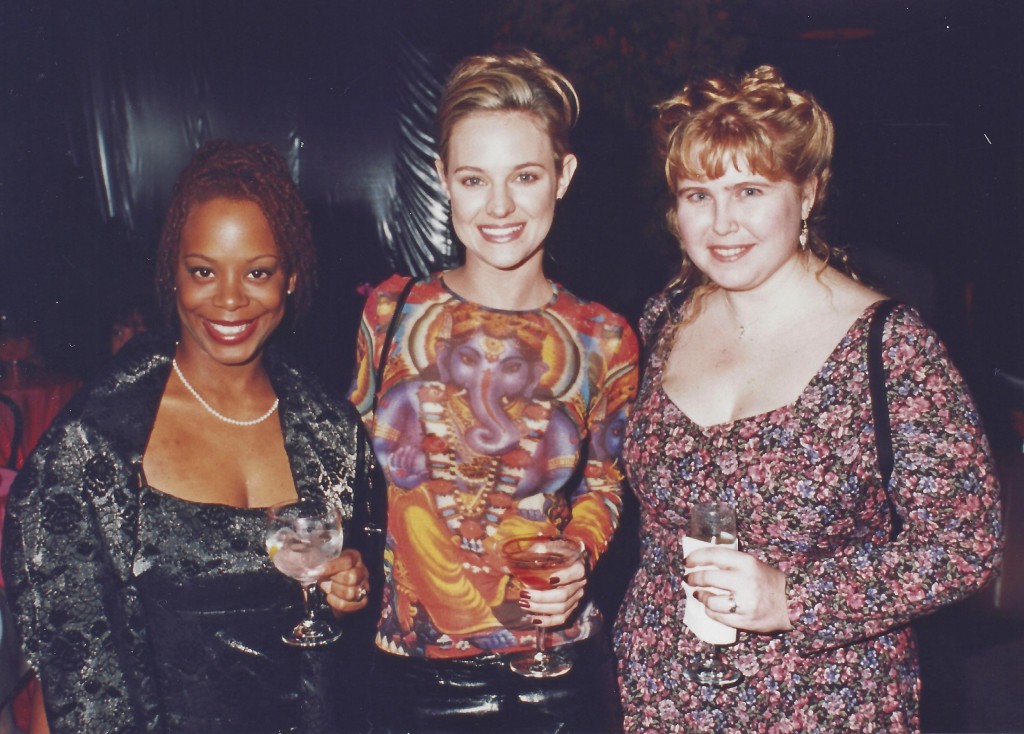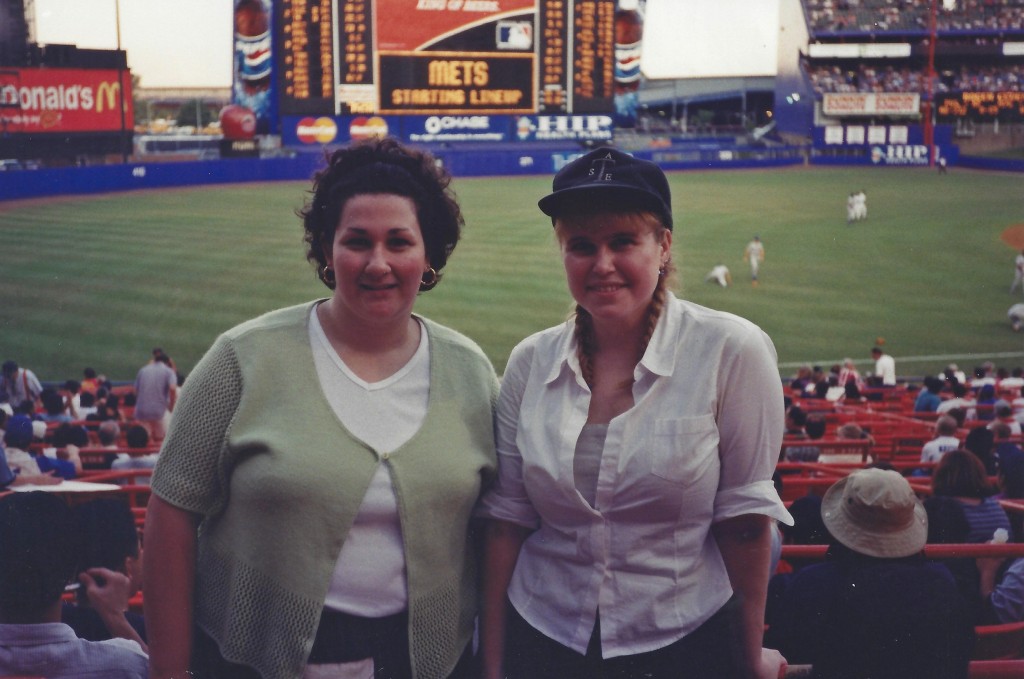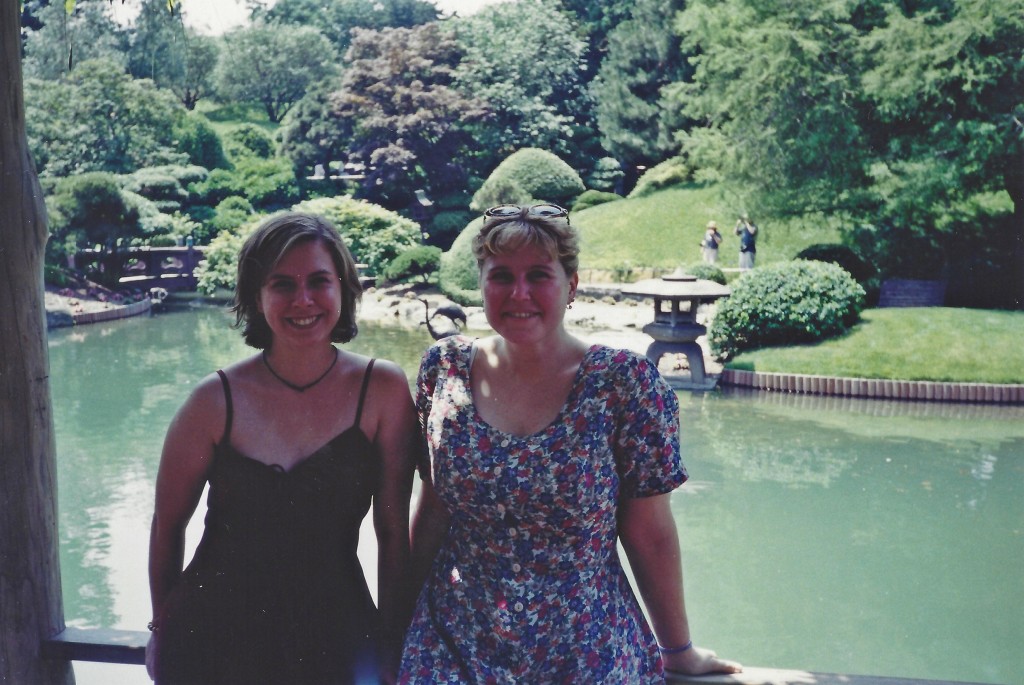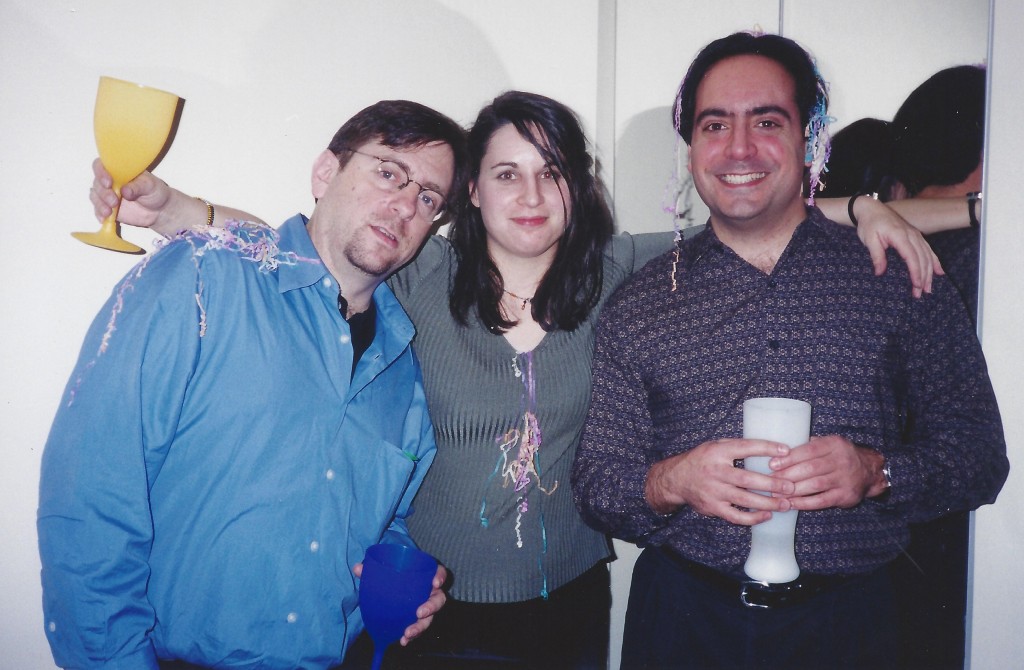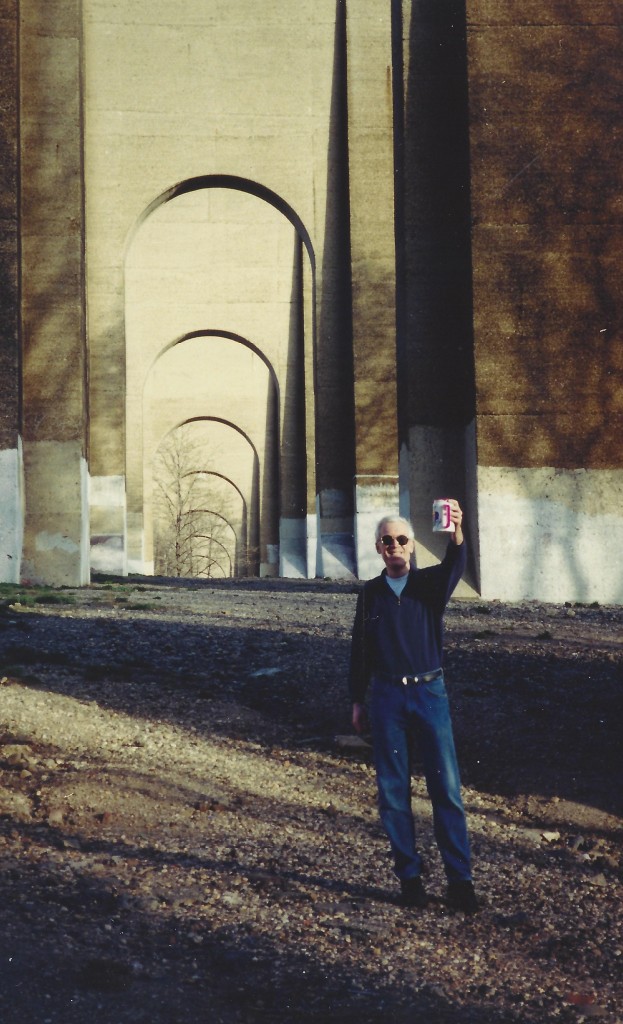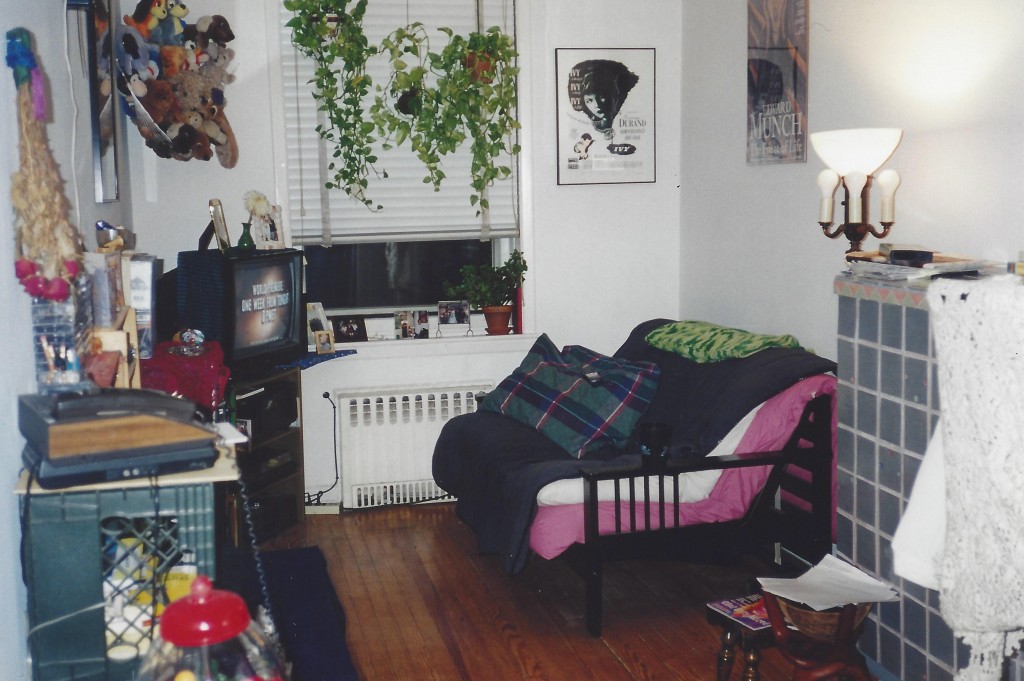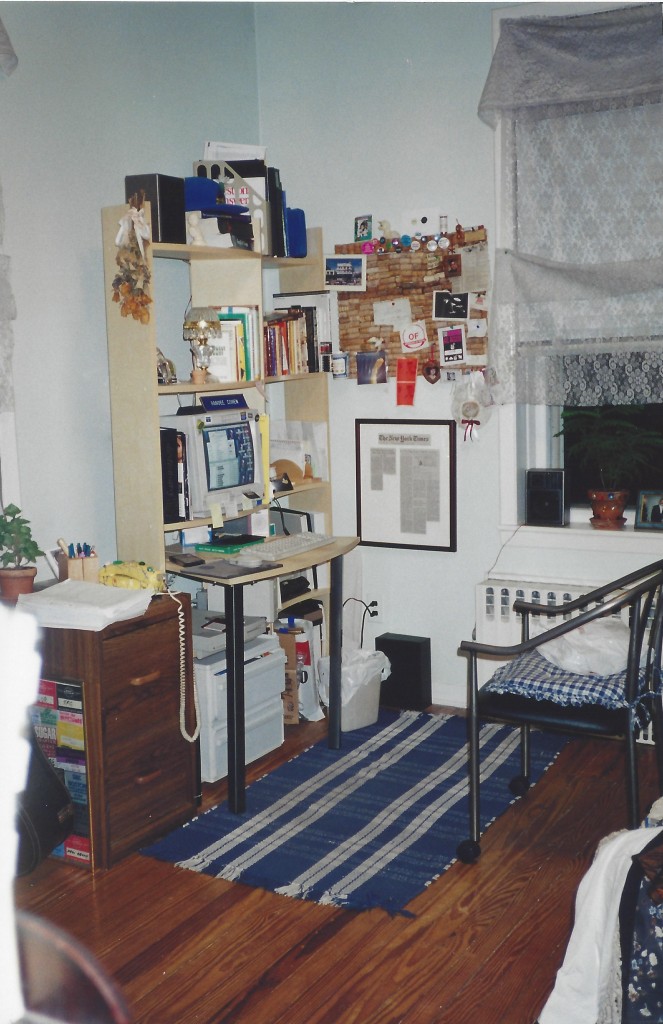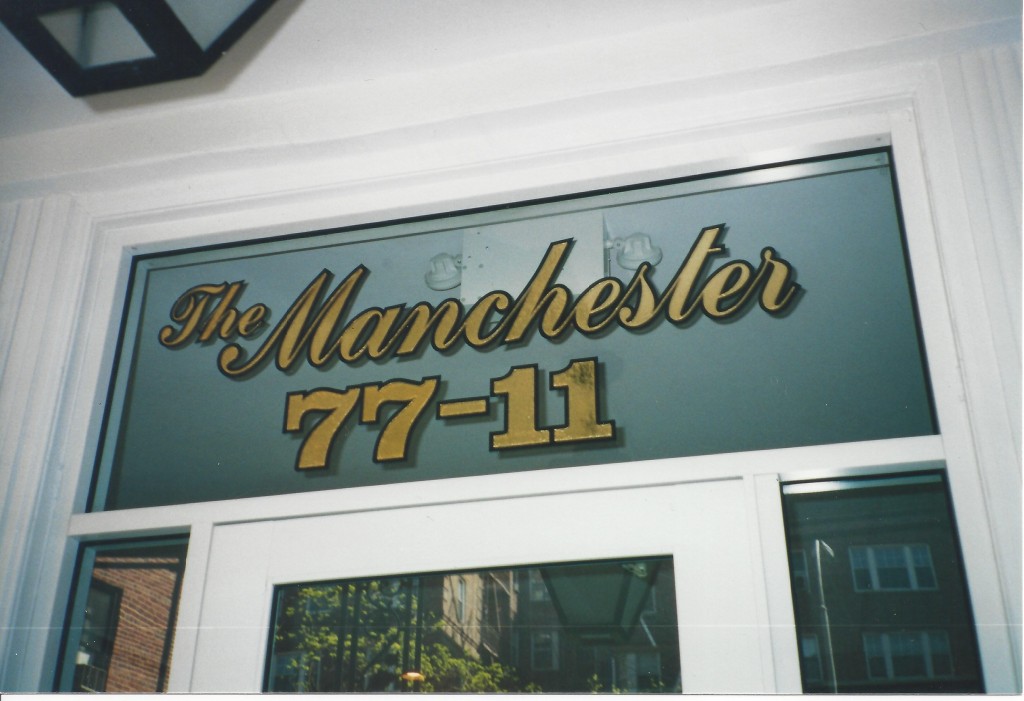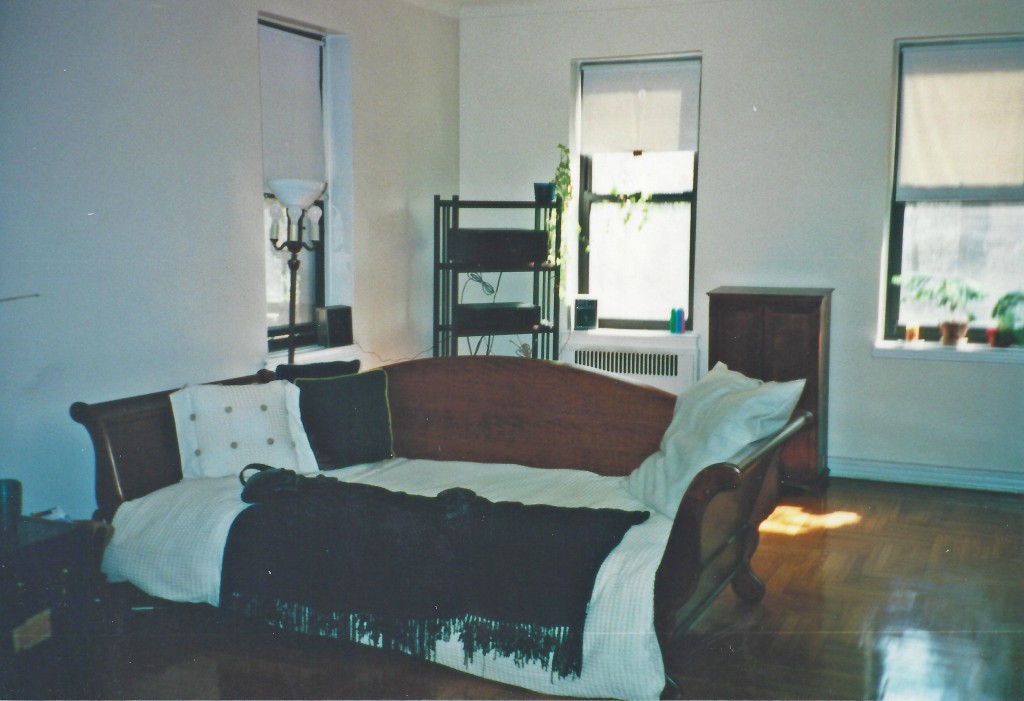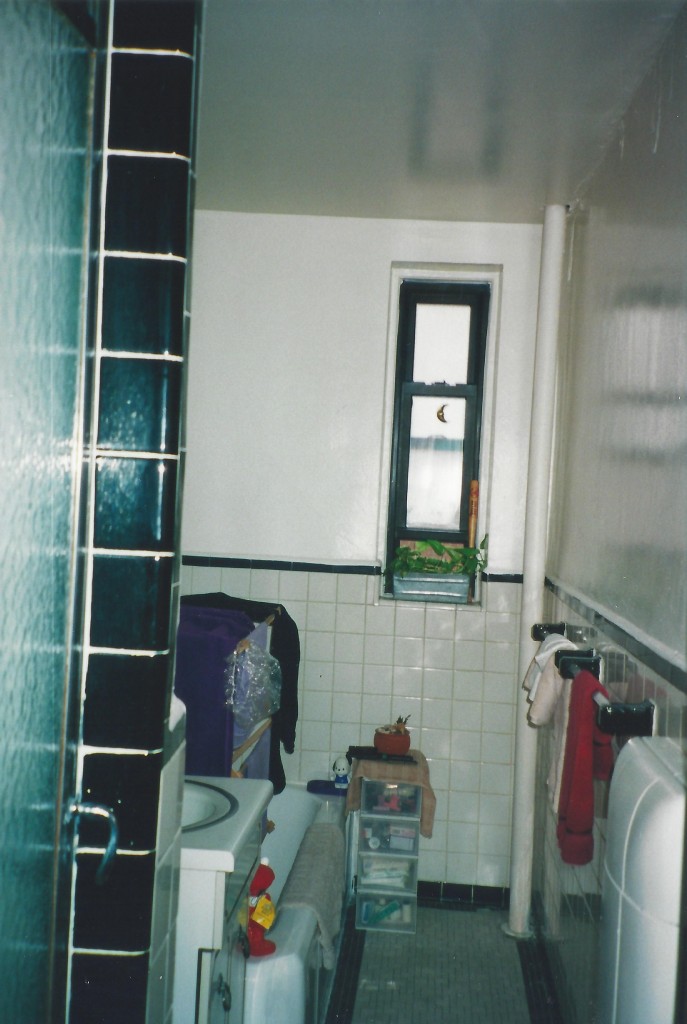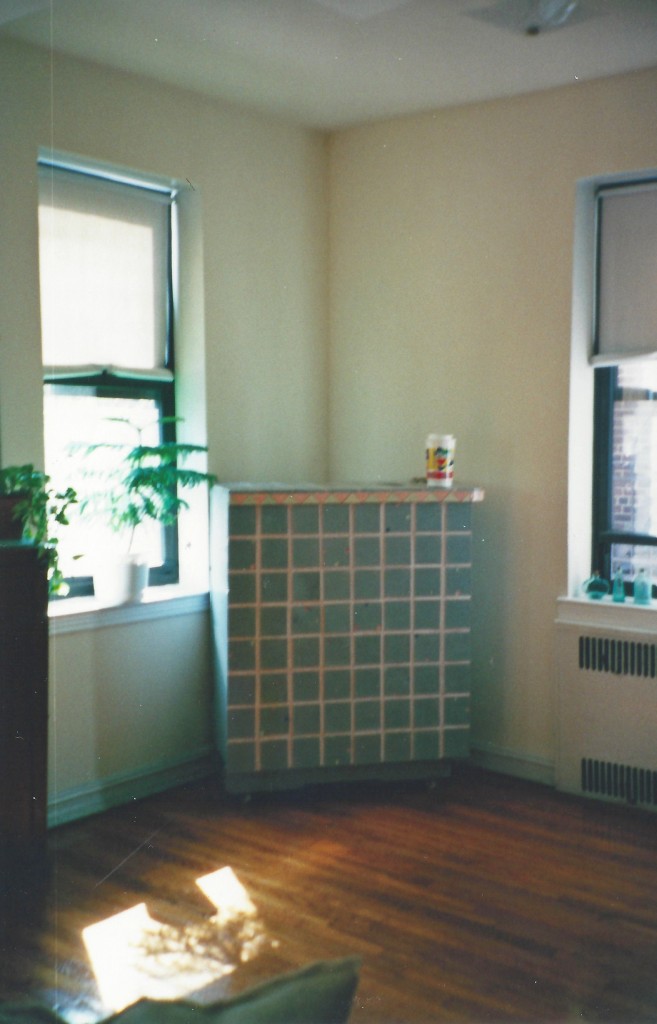3.13.16 20 Years in NYC, Part 2: Be the shark, never stop moving

The first part of my 20 years (and counting) in New York City can be found here.
Law & Order changed my life.
It shouldn’t have. It was a TV show. It still is a TV show, shockingly. I didn’t watch police procedurals. But I caught the bug while in Boston: at 11 p.m. on A&E one could find Law & Order reruns. On Law & Order reruns, one found Chris Noth. And his rather impressive forearms.
I brought my fandom with me to New York City when I moved. DVRs weren’t extant in 1998 so I had curated VHS recordings of the first 111 episodes of the show (the extent of Noth’s appearances) and connected with fans online in AOL chat rooms, and sometimes in person. In the early days of the Interwebs, this was really quite something. I was still reeling that I could get assignments from magazines in the UK and get paid, all without ever talking to someone on the phone or meeting them in person. Diving into fandom and actually making friends through a TV show was a little surreal, and geeky before geeky became cool.
With that as background, let’s go back to my temp days at the M&A firm, before I took the job with the difficult-to-please Michael. Still a temp, I was scouting for jobs in the New York Times when I came across this small wedge of an ad. It said something to effect of “Associate editor wanted. Soap opera knowledge a plus.” My previous crazy TV fandom in middle school and high school had been for General Hospital, but I hadn’t spent much time keeping up with Port Charles lately, or any soaps. Life was short, and Chris Noth had pretty great forearms. And hair. Did I mention his hair?
So despite my knowledge of soaps being somewhat dated, I applied. Time passed. I didn’t hear back. And really, nobody ever really got a job out of the NY Times, so I was far from surprised. Clearly I had to think seriously about what I was going to make of my career. Law & Order made the law seem interesting — I liked the idea that the law was the rules, and by becoming a lawyer you learned all the ways to augment or get around the rules. Despite knowing that TV was nothing like reality I entertained the idea of going to law school.
But that was a logistical and financial nightmare. I’d have to work and go to school to pay for it and I didn’t know if I could even afford the LSATs. But then I learned that I could get a paralegal certificate from New York University’s Continuing Education program by taking night classes. If I did that, and it turned out that I had aptitude for the subject I’d be very well prepared for law school. So yes, thanks to Law & Order, started attending paralegal classes.
- Martin Winckler/Marc Zaffran is a respected doctor and author and fellow “Law & Order” nut who visited me when he came over from France to New York City in 1999.
- I coordinated what I’m pretty sure is the only “Law & Order” convention ever. These were the attendees, before we hit one of the weekend’s high spots.
While taking classes, I met Nadine. We were study and snack break buddies who became friends, and I told her I freelanced. She told me her brother-in-law was the bureau chief for The Hollywood Reporter and offered to pass my clips on to him. He must have liked what he saw, because I began getting assignments from the magazine’s West Coast editors. New revenue stream ahoy!
So there I was: Day job as a secretary. Night classes as a paralegal. Freelancing on the side and weekends.
And then came the call to interview for that job that had appeared in the New York Times and things moved quickly. I landed the job (at Soap Opera Digest) and rejoiced. An actual real-life magazine had hired me for an actual real-life job in midtown Manhattan. It wasn’t Rolling Stone. But it was a job! In my field! And hell, I could get back into soaps. No problem.
Life lesson: If life isn’t giving you what you want, find a new path. Be the shark, never stop moving. That path may not take you where you want to go, but on the road you may — if you’re lucky — discover a fork that leads you forward. To wit:
- Had I not been freelancing in Boston I would probably never have watched Law & Order.
- Had I not watched Law & Order I wouldn’t have taken paralegal classes.
- Had I not taken paralegal classes I would not have met Nadine and not been freelancing at a business trade for a section of the entertainment industry I had barely covered before.
- Had I not freelanced for THR I’d have never saved up a down payment for my first home.
- I covered The Who at Madison Square Garden for THR, and even got to spend some time in the photo pit.
- Andy and Dominique were the married couple (still are) behind one of my favorite bands, Ivy; I did some mailing list work for them and we hung out. This is from a video shoot they did in 2000.
We’re not done with THR just yet or L&O; more soon.
Digest also changed my life, but in a different way. I still remember getting the call that I had landed the job. On the phone, an allusion was made to “my office” as in, an office I would have once I was there. Naturally, I assumed that was a polite word for “your cubicle among dozens of others.” (Or as Douglas Coupland would have called it, my “veal fattening pen.”)
It was nothing of the sort. This was my office (circa 2000), which I was given on my very first day:
That first day I had serious Working Girl emotions; you know, end of the movie where she thinks she’s supposed to sit at the secretary’s outside desk but instead is shown to her own spacious office and calls her friend and they have a OMFG moment on the phone?
Yeah, that. I used to joke that I could just give up my Astoria apartment and get a cot in there and save all kinds of money in rent, if that was legally allowed. It was an insane amount of space for a magazine editor in New York City.
Not shown: Across from my desk, up on the wall: My own TV. Yep, I was assigned to watch (and write about) TV all day, so I needed a TV. Really, you couldn’t make this shit up. I was also surrounded by women co-workers and bosses, which was a refreshing change. That’s largely been the case in my freelance and full-time life; I’ve mostly had all-women offices and women bosses, and while I get along great with the guys I’ve worked for/with I feel as though over the years I’ve thankfully missed out on many of the issues many people confront in offices. Mom was wary about working with women; she said they’d stab you in the back. I have not found this to be the case, ever. (Not that I haven’t felt a few pointed fingernails, though.)
- Stephanie, one of my bosses, who made cupcakes for everyone’s birthday.
- Carolyn, who liked being in charge.
The ladies who ran Digest (as a committed Anglophile I never could quite cotton to the more-commonly-used acronym of SOD) were smart, interesting, funny and terrific to work around. The business of soap operas deserves its own entry and I’ll write that some day, but not today; this entry is already pretty damn long.
I started at Digest in 1998 (maybe late 1997) and was there for five largely terrific years. I figured out how to deal with tough co-workers, I also learned that the business of soaps was a little more … synergistic with its subjects than, say, some other industries. And that some soap actors are really babies. But you learn. I was already used to pitching stories, so that came naturally. I got moved up in short order to feature editor and eventually news editor (inciting incident: I had an unexpected encounter with Susan Lucci at QVC — so many soap actors had side gigs selling things on home shopping channels — one afternoon and she told me a story for print that scooped TV Guide).
In those days, the soap industry hadn’t yet fallen off a cliff. Sure, ratings had begun slipping in the 1990s when the O.J. Simpson trial took soaps off the air for weeks and viewers drifted away, and cable was beginning to cut into the numbers, but it wasn’t a total bleed-out just yet.
That meant Digest was also doing well and had an annual awards ceremony in Los Angeles that was quite the production (it was even televised). Some of us were flown out for that. I met Michael Moore in the lobby of our hotel that year and wondered what he was doing next, now that it had been a while since Roger & Me. (He was apparently just about to release his second film, The Big One, but hadn’t quite become the powerhouse/Oscar-winner/rabblerouser he is today.) I think I startled him.
- Me with “Another World” actors Mark Mortimer and Eric Morgan Stuart. The boat was, I think, owned by their fellow actor Tom Eplin; we used it for a photo shoot that day.
- Digest co-worker and pal par excellence Elaine, with “Young & Restless” actress Sharon Case with me; this was at a Digest Awards party where I danced so hard my knees hurt later.
Meanwhile, with Digest‘s approval, I continued to freelance — in large part for THR, which paid well (at least, well in my books) and regularly. It was a mutually-beneficial relationship: When I interviewed Julianne Moore for THR when she got a Gotham Award, I also asked a few questions for Digest about her soap career. We turned that into a cover story about soap actors who made it big elsewhere.
You never know where the next story is going to come from.
That arrangement worked out well for everyone involved, but in my case it was about executing a long-term plan. I wanted to own some real estate before I was 30. I wanted to stop renting (which was throwing away money in the long run) and buy before the big three-oh happened. That meant serious saving for a down payment. That meant more writing for THR.
What you may notice here is a lack of a social life. And it was there — I made great friends and went to Mets games and horseback riding and dated.
New York City can be all social life if you want it to be. But when you’re essentially working a full time job with a part-time job on the side, there’s not as much time to carve out for a party or dating lifestyle. My life was full of my work, and my work was interesting — especially since when I wasn’t doing any of those official jobs that paid me, I was still writing fiction on the side.
I did meet some guys. There was Steve, who I met at his book party and who lived in his ex-wife’s basement. We had some good times but — well, it was never quite ready to pan out. I met Mark at a volunteer chorus and we also hit it off but again, not a lot of magic. He lived in Hoboken, which was a bit of a hike from Queens, and in those days that seemed to matter. He was in finance — worked at the World Trade Center, and we went to the Windows on the World bar at the top once for a drink — and I recall having what I felt was an odd chat with him about his being “socially liberal but fiscally conservative,” a concept that seemed at odds with itself. That wasn’t what ended it, but it ended.
- Mark on the left.
- Steve (that’s not a beer).
I also traveled a fair bit. This little mini-memoir is about New York City, though, so I haven’t gone into my writing retreat in Wales, or the many visits back to friends and family in Maryland, or Turks and Caicos or The Gambia or Italy for Jenny’s wedding. Good times!
By late 1999, I was ready for change. I had enough for a down payment on an apartment of a certain price range, thanks to regular freelance checks from THR. While riding home the 7 train one day I ran into a colleague (Gabby was at our “rival” Soap Opera Weekly, which was in the same building as we were and was owned by the same company). She said an apartment had opened up in her building in Jackson Heights, and I should call her broker.
- The old apartment before I moved. Yes, there is a giant hammock of stuffed animals. Good grief!
- The office space, slightly transformed by better furniture. Thanks, Pottery Barn!
I’d already been looking around — I was happy in Queens, so I had investigated places in Rego Park, Forest Hills (which had some terrific places just outside of my price range) and Astoria. Nothing had been the right fit, or the right price. I had about $11,000 in the bank, which in those days was enough to get a one-bedroom in the borough if you put ten percent down and didn’t understand how much you’d need on the back end for closing costs.
I saw the apartment in her building after work one night in January of 2001 by flashlight (the lights were off in the already-vacated space) and it felt right. In retrospect, not doing due diligence on this could have been pretty bad. I made an offer without a) checking out the surrounding neighborhood b) visiting in the daytime c) seeing the apartment in the daylight. Dumb luck protected me. But I was into the apartment immediately, seduced by the luscious amount of space it had.
I took a literal and figurative leap into the dark, and made an offer. By March, it was mine.
- Half of the living room. This is what it looks like when you move into a place where you have far more space than stuff.
- Bathroom.
- Dining room.
Then came the rest of that year….
The first part of my 20 years (and counting) in New York City can be found here. The third part can be found here, the fourth part here and the final part here.
xo,
R
[paypal-donation]

